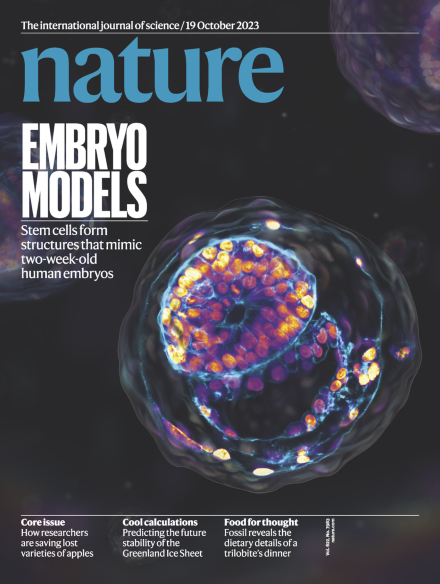Volume 622 Issue 7983, 19 October 2023
This Week
-
Editorial
-
-
World View
-
Research Highlights
News in Focus
-
News
-
Features
Books & Arts
-
Essay
Opinion
-
Obituary
-
Comment
-
Correspondence
Work
-
Feature
-
Technology Feature
-
Where I Work
Research
-
News & Views
-
Articles

